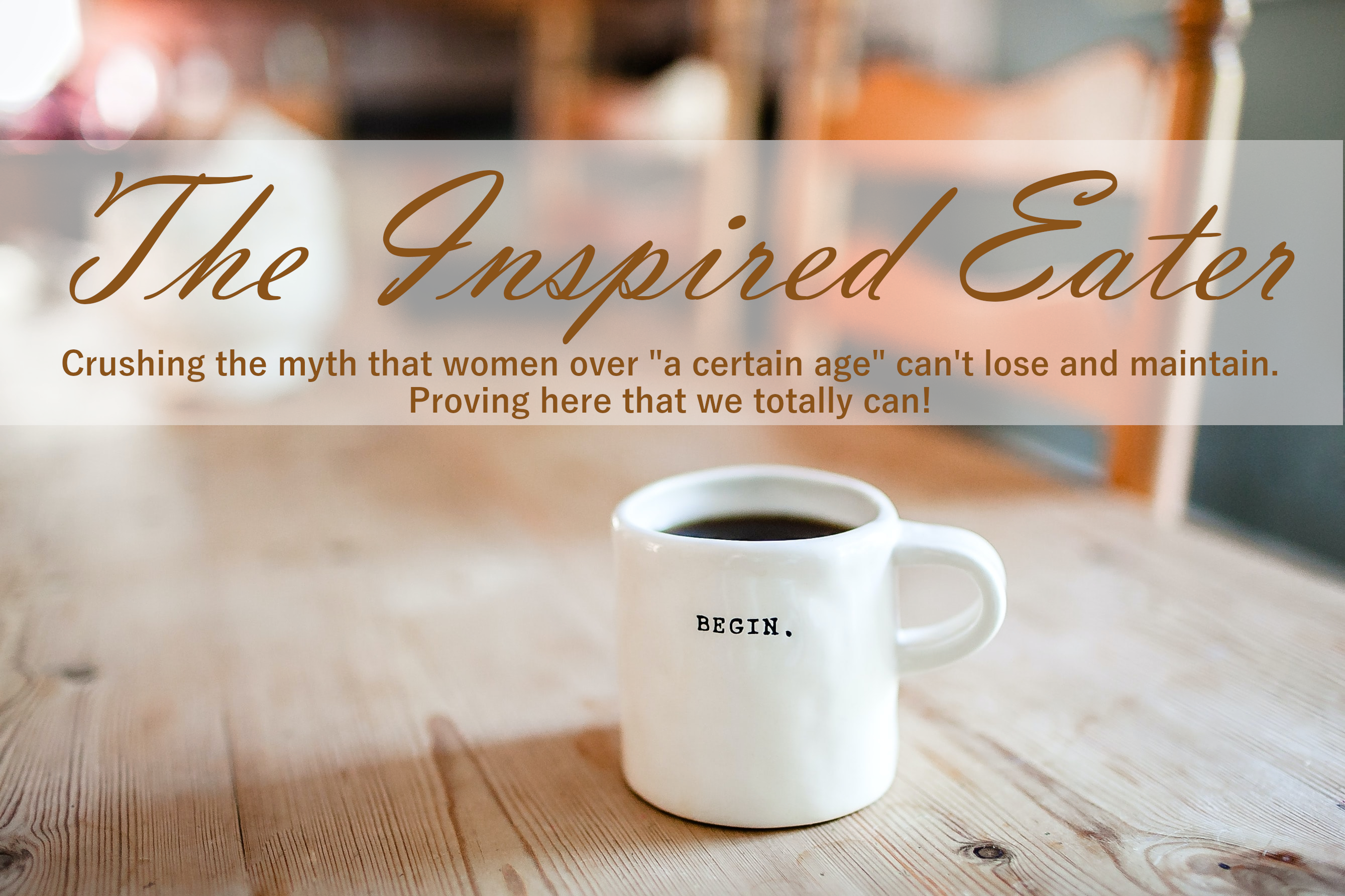Hi Everyone,
These Pearls are a tad long so let’s get started! And welcome to new people! If you didn’t receive Aunt Bea just email me: Wendy@theInspiredEater.com. ♥
Pearl One
Today we’re talking “individuation” in Pearl One and in Pearl Two “differentiation.” Then we’ll talk why they matter in our smart eating lives.
A new friend and I agreed to meet at lunch for Thai. We were just getting to know each other, but one thing caught my attention when we ordered. You know the spring rolls that’ve clearly been fried in grease? Well, gross or not, I love them. I don’t always order them but when I do, I eat the whole thing and then ask if you want yours.
So, when the staff person asked if we would like spring rolls with our lunch?” my friend immediately replied, “We don’t eat those fried things. No, no, icky, icky” and looked at me for confirmation.
I didn’t say, “but I LOVE them!”
Instead, I didn’t make a peep.
The – what l perceived to be – pressure to be like her, eat like her and hate spring rolls like her, felt concerning. I mean, it wasn’t a surprise, but the “let’s be alike” thing can be a signal that someone might not have have gotten far in their individuation process. (Wouldn’t it be fun to have me as a friend?)
I’d given my new friend a neutral reaction re: the spring rolls; not agreeing or disagreeing. But this spring roll situation is a great example of two people (my friend and myself) both needing work on our “Individuation journey.” My friend was pushing boundaries assuming I disliked spring rolls too. And I wasn’t setting boundaries by speaking up and saying that I love them.
(That said, I could have perceived things entirely wrong. If I’d known her better, I would have asked for feedback.)
What’s my point?
The idea of individuation is one that informs every molecule of our lives.
Carl Jung theorized that at mid-life we (unconsciously) begin to individuate in earnest. (Since his time, we now believe that a newborn begins to individuate when she’s just out of the womb.)
I once had an instructor in my master’s class say, “When the toddler first says, ‘NO!’ The parents should throw a party!” because yelling “no!” is a sign of strong mental health; the little girl is coming along beautifully, right on schedule.
Gems from the Journal
Now would be a wonderful time to pull out your journal. Individuation is about wondering “do I have a life’s purpose? And what is it? Why am I here? And who am I if I weren’t Wilson’s mom and Alex’s wife? Who am I as a person outside of the larger culture? Are there parts of myself that I haven’t used/been in for years. How am I at setting boundaries?” (As they say, there’s a lot to unpack here.)
It’s as if you’re outlining yourself with a big, black marker defining who you are. Carl Jung “invented” individuation and he believed that in mid-life the urge to evolve as a person is at its strongest.
And – as you likely know –, a painful childhood may likely mean that individuation stalled along the way.
You can locate the right therapist who can be a mid-wife for your individuation process or you can let the ideas percolate in your mind and then journal-write, pouring it out on the page. There’s great wisdom inside of you and you can access it all through your pen.
As Jung put it, “The world will ask you who you are, and if you don’t know, the world will tell you.”
Pearl Two
Now let’s talk differentiation (having a solid sense of self in a relationship).
Michael Phelps won 28 Olympic medals and became the most decorated athlete in Olympic history.
But can you imagine being his wife? “What do you mean you’re hungry again?”
When we’re in the honeymoon stage of being a couple, there’s a lot of “we’re so alike. We both like Johnny Cash! And SNL!! He even loves pizza! I mean, what are the odds, right?”
However, once the good-times start slowing down and real-life returns, differentiation becomes a significant player in your relationship with your partner. Differentiation tells us, that “as a couple we can be apart for the day, I still love you even though you’re not standing in front me at the moment” (summary of a Michelle Obama interview).
And it’s absolutely part of differentiation to say, “I’m working on smart eating, so dinner is going to be a little different this year (it’s really “a forever” way of eating, but take your partner along slowly).
Differentiation asks, “how are you able to maintain your sense of self while still engaging in an intimate relationship with your partner?” Do you both need to love the same movies? If he golfs with buddies while you go to church, is that okay with you?
I use Michael Phelps as a stark example of a married couple not eating alike. Phelps and his wife of course had to eat differently than each other, it wasn’t even a question. She had her meal and he had his
In a perfect world each partner has been on a steady path towards their own “individuation” and when they come together, they’re able to be physically close, plan their future together; basically, engage well with one another in a respectful, appreciative, curious and caring way. Always keeping their partner in mind, but also asserting themselves into the equation.
Bahahahaha!!
Had you for a second there, didn’t I?!
Let’s be real, you and I don’t live in Unicorn-Land. We live in the real world where partners have no idea what the word “differentiating” even means. But here’s the cool news: you can individuate and differentiate with your partner on your own. Just pour it all out into your journal. Writing is the best form of therapy because it’s always there for you.
What does individuation and differentiation have to do with us? When we bring a more defined sense of self to the partnership, we better choices and tolerate less (excuse my French) BS. Just know that “individuation” lifelong process. You’re creating a better relationship with yourself and that’s a forever-exploration.
A healthy differentiation directly affects our smart eating lives. If you feel a pull to always eat the same food items together. If it somehow feels “wrong” to eat separately. IF you think things like, “but that isn’t a marriage if I don’t eat with him” you might want to journal-write about your basic assumptions of a partnership and how you “show up” as a person working on your own individuation.” ♥
Pearl Three
A sequence a week
Once you get accustomed to doing sequences, you can do them in your mind. But again I typed them out for eons. This sequence is roots are grounded in Cognitive Behavioral Therapy (CBT) founded by Aaron Beck in the 60’s.
The Initial Sequence
- Situation: Grocery prices are high including produce.
- Thought: “I’ll never see my favorite foods again! How does smart eating even work if the food you love isn’t affordable?”
- Feeling: Angry.
- Action: Just tolerate what I can afford.
- Result: I’m living in an angry state of mind and perceive the grocery stores as as the “bad guy.”
The New Sequence
- Situation: Grocery prices are high including produce.
- Thought: I can adjust to our “new normal,” it’ll take time but I’ll get there. In the meantime I’ll search for ideas about how to bring costs down.
- Feeling: Proactive and like I’m taking care of myself.
- Action: I feel emboldened to search for solutions to the crazy prices, so I asked on a specific forum how they’re managing to keep the prices down. One person responded, “Do you know where an Asian market is by you?” Do I?! We live a stone’s throw from a huge Korean market. The responder suggested that I might like the produce prices in an Asian market better than at Kroger. Not sure that’s true, but I will report back.
- Result: I’m going to the Korean market this weekend! ♥
Pearl Four
Pearl four is an amazing book recommendation; not a review, just an awesome book I want to share
A few months back we read Whatever You Do, Don’t Run by Peter Allison and it apparently affected me because ever since i watch way too many “lions in the wild being a family” short-form videos. I wanted to share his next book with you and I was finishing the book I realizzed that I’d skipped too many sad animal stories. I think there was one sad story in his first book, but the secone, no, too many scenes that I don;t want in my head!
Bui they’re rather stories gentle stories — not for me — but you might be fine with that sort of content. If you are, his book is called Don’t Look Behind You. If you have a gentle heart for animals you might want to skip this one. But if you haven’t read his first, it’s really good.
Pearl Five
anonymous.
The mind can be both your greatest ally and worst enemy; you make it your strongest ally! ♥
Just a little housekeeping: I’m moving The Inspired Eater to either Mondays or Thursdays. Can you let me know in the comments below which day you’d? And thank you for doing that.!
♥ Wendy
You know the scoop: I’m an Amazon affiliate. If you buy from a link in my post, I’ll receive money, but the arrangement won’t cost you a dime.
Are you new to the Inspired Eater? Welcome!! This blog won’t make much sense until you first read the Aunt Bea post (and you’ll find Aunt Bea on this page to the right under my short bio). On your cell you’ll see it immediately following the first post. After you enter your email address, the Aunt Bea article will be sent to your email’s inbox. If it’s not there, you might check the spam folder. And always feel free to email me at Wendy@TheInspiredEater.com and I’ll get Aunt Bea right to you!!
I am not an expert, a doctor, a surgeon, a nurse or a nutritionist: the information within TheInspiredEater.com is based solely on my personal experience and is not intended to be used as a substitute for professional medical advice, diagnosis, or treatment. ♥


4 Comments
Wendy! Because other bloggers I follow post on the weekend starting Friday, I’d love to see your blog on Thursdays, otherwise a wasteland in terms of bloggers I like to read.
Thank you for voting Mary! I love knowing that Thursday is wasteland day. 🙂
Thursdays would be great!!!
Wow…..this was great! I felt like I was back in my early education classes/peds nursing classes/psych classes and I LOVED it!
The sequence is one of my favorites.
Back in a class room:!
But thank you, C!